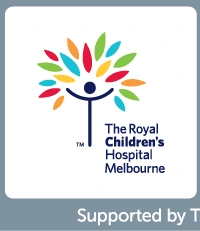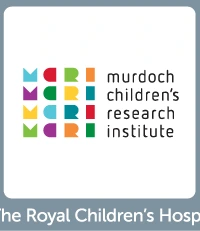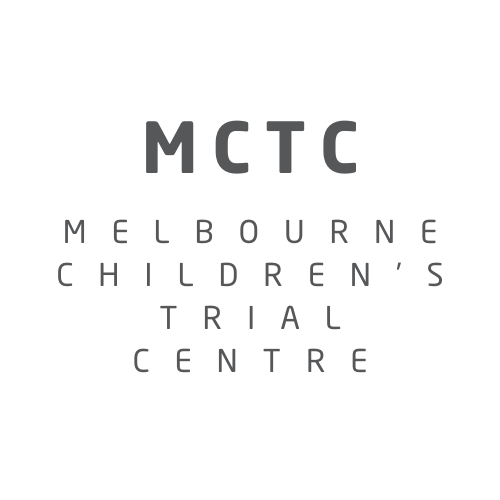Clinical Trials
What is a clinical trial?
Clinical trials are research studies that test ways to improve healthcare. These studies help find better ways to treat or prevent disease.
Clinical trials are conducted only after satisfactory information has been gathered on the quality of the non-clinical (laboratory) safety of the intervention, and an ethics committee has approved the trial.
Participating in a trial is not the same as receiving regular clinical treatment, so it is important that you read all of the information before deciding to enrol your child in a trial.
Visit the ACTA Consumers page to watch a video about Clinical Trials (available in Arabic, Chinese simplified, Chinese traditional, Filipino, Greek, Hindi, Italian, Punjab, Spanish, Vietnamese).
Further information about how clinical trials work can be found on the Australian Clinical Trials website.
Clinical Trials are used to find innovative ways to prevent, detect, treat or manage various diseases or medical conditions. Clinical trials can involve research into the following:
- new medicines,
- surgical and other medical treatments and procedures
- medical devices
- vaccines
- educational intervention
- diets
- psychological or behavioural counselling
Trials offer the hope of developing better interventions or tests for a particular disease or condition, so that even if a trial does not provide a benefit for an individual, it may provide benefits for others with the disease in the future.
Clinical trials may be initiated by a drug or device company that has developed a new intervention. They are called the sponsor of the clinical trial and must be an Australian business. Sometimes the intervention has been developed by an overseas company. In these cases, an Australian company is contracted to act as the sponsor on behalf of the international company. The sponsor provides funding to the hospital to cover the costs of conducting the clinical trial. These types of trials are called Commercially Sponsored Trials.
Clinical trials may also be initiated by medical research organisations and individual or groups of health professionals, such as doctors and nurses. These are called Investigator Initiated Trials (IITs) and may be funded by a research organisation, a grant from research funding bodies, or by the hospital itself.
Each clinical trials is led by a doctor who is called the Principal Investigator. The Clinical trial team includes doctors, nurses, pharmacists, medical scientists and depending on the requirements of the trial, other hospital staff teams like medical imaging. Behind the scenes are a whole bunch of other staff who provide education, training, support, data analysis, legal advice, quality management etc to the clinical trial team.
Medication and treatment clinical trials are divided into four phases (represented by roman numerals). All new medications must be tested in phase I, II and II studies before they are approved for use by the public. The video link tells you more about the phases of clinical trials https://www.youtube.com/watch?v=dsfPOpE-GEs
|
Phase |
Aim |
|
I |
Researchers test a drug or treatment in a small group of people (20–80) for the first time. The purpose is to study the drug or treatment to learn about safety and identify side effects. |
|
II |
The new drug or treatment is given to a larger group of people (100–300) to determine its effectiveness and to further study its safety. |
|
III |
The new drug or treatment is given to large groups of people (1,000–3,000) to confirm its effectiveness, monitor side effects, compare it with standard or similar treatments, and collect information that will allow the new drug or treatment to be used safely. |
|
IV |
After a drug is approved by the FDA and made available to the public, researchers track its safety in the general population, seeking more information about a drug or treatment’s benefits, and optimal use. |
Why be part of a clinical trial?
By taking part in a clinical trial, your child can contribute to the advancement of medical knowledge and, in some cases, to improved health for themselves or other children with the same disease or condition.
Clinical trials are part of research and at the heart of all medical advances.
The goal of clinical trials is to determine of a new test or treatment works and is safe. Clinical trials can also look at other aspects of care, such as improving the quality of life for children and young people with chronic illnesses.
People participate in clinical trials for a number of reasons. Healthy volunteers may participate to help others and to contribute to advancing medical science forward. Participants with an illness or disease also participate to help others, but also to possibly receive the newest treatment and to have the additional care and attention from the clinical trials staff.
Clinical trials offer hope for many children and young people and an opportunity to help researchers find better treatments for others in the future.
Are they safe?
All clinical trials are regulated by Australian laws and codes of conduct to protect participants and the integrity of the research information gathered.
All clinical trials in Australia are required to undergo a thorough review process by an accredited Huma Research and Ethics Committee before commencing. This review process ensures that proposed research conforms to:
- The National Health and medical Research Council (NHMRC) National Statement for Ethical Conduct in Research
- Australian Commission on safety and Quality in Healthcare : The National Clinical Trial Governance Framework
Clinical trials have many benefits, but they also come with some risk. You and your child/ young person are required to be informed of all the potential risk before being enrolled in a trial.
Potential Benefits
- Assist in the development of new treatments, therapies and/or diagnostic procedures.
- A chance to access a new treatment or therapy not yet available to the public.
- Opportunity to support and contribute to research.
- Advice and care from top expert clinical leaders in their filed.
- Personalised and enhanced care
- Specialised treatment monitoring
Other potential benefits can include:
- Gaining access to new treatments that are not yet available to the public
- Obtaining expert care from world leading researchers
Potential risks can include:
- The new treatment, intervention or test may not work for your child
- There may be unpleasant or serious side effects associated with the new treatment, intervention or test
- The need for additional treatment, tests, hospital visits and time
Until recently, children were rarely included in clinical trials and much is still unknown about how children respond to some medications, medical devices and tests. Therefore, clinical trials that are designed to test the effectiveness of treatments, interventions and tests for children are important to ensure that children, too, can receive appropriate, safe and effective treatment and care.
Can my child participate?
Participation in a clinical trial depends on the type of trial being conducted. All trials specify who they need to recruit to conduct the research. This changes for every trial as they need to meet specific requirements as set out in the Ethics application. Trials may need participants relating to particular or combination of:
- Age group
- Disease or condition
- History of disease or condition
- Stage or progression of disease or condition
- Previous treatment / medical history
- Health status
- Demographics
Before your child can be enrolled in a clinical trials, they may need to undergo some medical tests to ensure that they are the right person for the trial. These tests are also used to create what the researchers refer to as ‘baseline’ data of your child’s condition. If / when further tests are done during the trial, they will be compared with your child’s baseline data.
How to be part of a clinical trial
All clinical trials in Australia are recorded on the Australian Clinical Trial website where anyone can search by broad health condition or specific condition.
See the Video tutorial on how to search for current trials being conducted in Australia.
Speak to you child's treating doctor regarding any potential clinical trials that may be suitable for your child.
Also visit the Murdoch Children's Research Institute Research Theme website for details of current research projects and contact details.
To find clinical trials around Australia, visit ClinicalTrials.gov.
You can stop your child's participation in a trial at any time. You can choose to remove your child from the trial at any time without giving a reason and without it affecting the care that your child receives.
If you do withdraw your child from a clinical trial, the relationship between you and your child's doctor will not be affected. It is important to discuss your decision with the research team so that they can advise you about any special requirements about leaving the trial and what will happen to information about your child that has been collected to date.
Further Information
If you would like further information about clinical trials in general please visit the Australian Clinical Trials Website.
If you would like further information about clinical trials at the RCH Campus please speak to your child's treating doctor.




